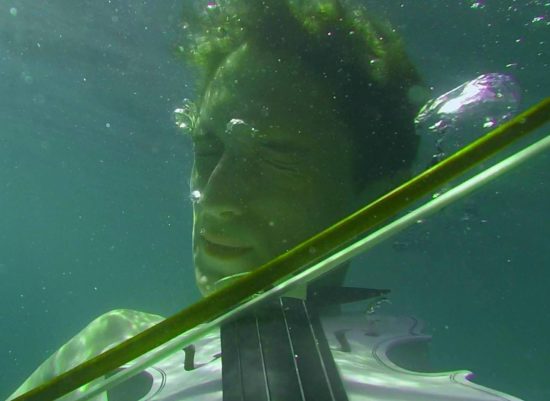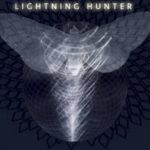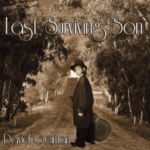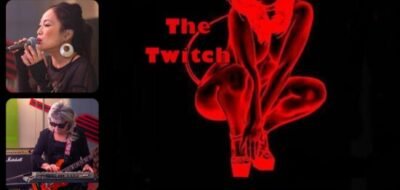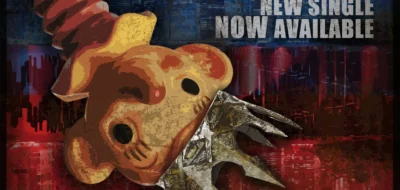It is a simple fact that the best way to get better skills as an artist and producer is to just do it. Put in the time and devote real energy to the craft of creating music. Work with others and be open to the knowledge that everyone has to share. Our recent discovery Luke Aymon seems to have done just that to reach the high level talent he is today as both an artist and producer for other talented artists.
We caught up with him to get a little deeper into his rise to prominence. Enjoy the interview here:
What first drew Luke Aymon to music?
I could joke and say that Luke Aymon didn’t have a choice! I started piano lessons when I was 4, and from there began the downward spiral toward downward spiral towards the singularity that was music production. I played in a couple of bands throughout middle and high school, and when I discovered virtual instruments and music production – that was unbelievably intoxicating. the instant playback, the independence, not having to rely on bandmates, was beyond gratifying for me. How could I not be drawn to music production?
Truthfully, I’ve always been interested in expression and creating art. I’ve dabbled in many different forms (animation, electric guitar, viola, etc.), and music happened to be the format that I had the most experience in. Music was the most precise way I could represent the things I say.
Which artists and producers have had the biggest influence on you?
Some producers who have caught my attention in a at different times: Dillon Francis, Madeon, Porter Robinson, Flume, ODESZA, FINNEAS, Boys Noize, Gesaffelstein.
Lesser-known producers who deserve shout-outs because really inspire me, all in different ways: Flybear, Roger Wilco, Darklit, Manatee Commune, Chuck Sutton, Dylan Brady, Stereo Cube, Emancipator.
When I first started producing, I wouldn’t say that I had any role models – I was effectively making electronic Rock and Pop music, and just copying idiosyncrasies from the slew of artists I had downloaded on iTunes (and the songs I had played on Guitar Hero!).
The producer who first really drew me to EDM and electronic music in general was Skrillex. I was enamored with his sound design and the energy in his music. It was so outside the scope of what I had listened to – and what I could produce – that my producer crush on him lasted all of high school!
The mixers who have had the biggest influence on me would be David Glenn Kulp, Matthew Weiss, and my teachers at Berklee, in particular Jeff Baust and Brian Cass.
Where do you find inspiration for the music and beats that you make?
The subconscious is a strange and powerful force. When I set aside time to “just play,” often the way I’m really feeling will reveal itself in the music. I’ve written songs about things that I haven’t understood until later – I once wrote a song about an interpersonal conflict that didn’t come to a head until a little more than a month later, but it reflected my feelings about it perfectly. When my subconscious needs to send me a strong enough message, all I need to do is sit down, get in the zone, and it’ll write itself. (Getting in the right headspace in order for that to happen is the hardest part.)
When I don’t have the luxury of waiting to be distressed enough for inspiration to strike, I draw inspiration from other sources: nature and natural concepts, life and death.
One of my most beloved teachers at Berklee, Dr. Larry Bell, said that all music is about different aspects of love and death. I think there’s a lot of truth to that. I’m trying to break outside of that, but it’s difficult – those two are the most compelling subject matter.
How do you determine who would be a good collaborator to create music with?
I’m lucky enough to have worked with a lot of fantastic teams. However, I’ve really lost my appetite for working with people who are just in it for money or success. I find it near-impossible to write a good song when the only thing you’re aiming for is “the biggest hit,” or “the most monetizable record.”
The restrictions that you impose upon yourself when you have to make something cookie-cutter, and the mental baggage that comes with the “it must be a success” mindset will trap you in a corner and poison your creativity.
I used to have a much lower bar when I was starting out. I think that’s not a bad way to approach music when you’re a beginner: try collaborating with everyone, and see what sticks and what doesn’t.
I’m still pretty open-minded, but I’ve realized that I want to work with people who are interested in writing about a specific concept when they come in: their last breakup, their journey with mental health, the loss of a loved one.
There isn’t necessarily anything wrong with just hanging out in the studio and playing around with audio – there’s a time and place for that; experimentation and play is important.
You have found success as both an artist and a producer. How do you find the balance?
To find any sort of balance, I have to ask a question, both to myself – and sometimes explicitly to the client:
Is this project about me, or is it about them?
Basically, are they working with me because they want the “Luke Aymon” sound? (Probably not, I’m not that big yet!) Or, are they working with me because they know I have a skillset that allows me to be a chameleon of sorts, and they want me to imitate someone else’s sound?
If it’s the latter, (it usually is) then my job is to listen. A lot.
I ask a ton of questions, find out what the person’s vision for the project is – and then do my best to deliver it with as much passion and truth to this vision as possible. I think it’s also important to not insert myself and my sound or vision where it isn’t wanted or needed – to check my ego.
Often the two roles – artist and producer – aren’t mutually exclusive. They inform each other a lot. I learn techniques when I’m experimenting as an artist that I can ask clients if they want to include and diversify. I love collaboration. Conversely, I learn techniques when I’m copying other producers for clients, and incorporate them in my Luke Aymon productions when it feels right.
The artist side is easy – be creative, and deliver art that says something.
We hear you have been working with some unique artists lately. What can you share with us about that?
I have! So, the biggest project I’ve worked on as a producer to date was Rachel Norman’s Resist EP. We were able to work with a number of amazing artists and producers, featuring the likes of renowned producer/DJ CLOCKWORKDJ, my wonderful friend and guitarist Kris Wong of Vera Kay, composer Jason Leonhard, of whom I ended up mixing another EP for, and Mike Abiuso of Behind The Curtains Media. It’s an interesting combination of Jazz, R&B, Pop, and a little musical theatre. It was a huge learning experience because a lot of what she asked for was outside my wheelhouse, which again requires a lot of listening and client development.
The next big project on the front burner is Gabriella Elyse Monaco (GEM)’s debut EP, which is an entirely abstract and enlightened approach to composition I haven’t delved into as much previously. She’s based the album on The Divine Comedy’s Inferno, (written by Dante Alighieri, in 350), and also has quite the team built up which I’m so happy to be a part of, including notable EDM producer Icarus Moth. Each song is meant to encapsulate a literal and allegorical understanding of each of the different circles of Hell as described by Dante, while also relating to this universal feel as GEM works in her own studies, this postmodern world of depression, desensitization, and mediocrity. She’s pushing me to become better at integrating cinematic elements, and understanding how to interpret a very specific and complex vision. It’s a cauldron of influences Opera, R&B, Blues, Trap, and more.
Share some advice for aspiring producers trying to find their groove?
I know this sounds like a cliché (and it is), but I’ve wasted a lot of time thinking that certain things would “fix” my productions. The only thing that can “fix” your productions is a lot of effort.
That in mind, just start doing. Don’t get caught in the trap of “I’m not good enough yet because I don’t have (a plugin, a certain skill set, a way to profit). In many aspects of music (and the world), you have to try and fail in order to succeed.
In terms of more specific advice, I would recommend you rotate your focus. I tended to do this naturally while learning, following my enthusiasm wherever it led. If you want to get better quickly, be disciplined about it. Spend a week practicing sound design. Then a week beat-making. Then a week songwriting. Then a week on mixing. Watch a lot of videos and try a lot of new things. Switch up this order however you like, and find a niche – the area of focus you’re most passionate about.
Most importantly, If you really want to improve quickly, be humble and ask other people questions. You can sometimes learn a lot more from a single conversation with someone, than you can in a whole day of watching YouTube videos. The people you think aren’t worth your time often have very valuable things to teach you; someone can be bad in most areas, but have one niche that they know everything about. But you won’t know that unless you are open-minded.
I wasted a lot of time thinking that I was the best thing on the planet, and my growth stagnated – at one of the best music colleges in the world, during a time where I could have learned twice the amount I actually did. In this respect, don’t be like me. Be humble, you will be surprised by the quiet rewards it brings.
What does the future hold for Luke Aymon?
A lot of music.
New sounds, arenas of exploration, and unexpected collaborations.
After almost 10 years of production, I feel like I am just now finding my groove – and it will show in the music.
Most of what will be released in the coming months will be work where I’m supporting other artists, who have unique and compelling voices and visions. I’ll be doing a lot of listening, learning, and experimenting.
There will be a re-release of Origin & Terminus, hopefully before the end of 2019. I’ll be re-producing these songs, because I think I can do them justice now.
Expect some interesting collaborations and some unique and compelling singles in 2020. Keep up with Luke Aymon HERE.



